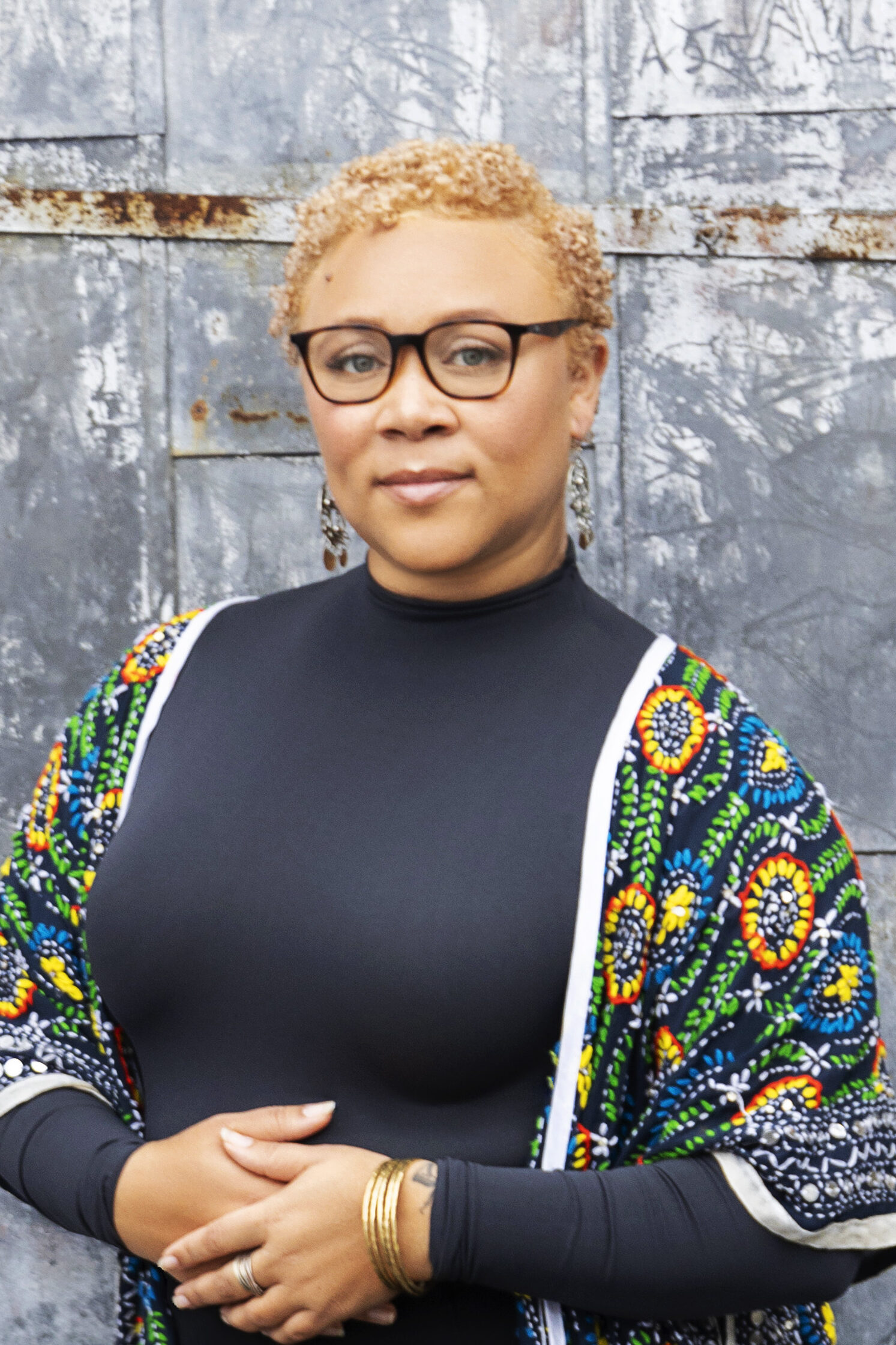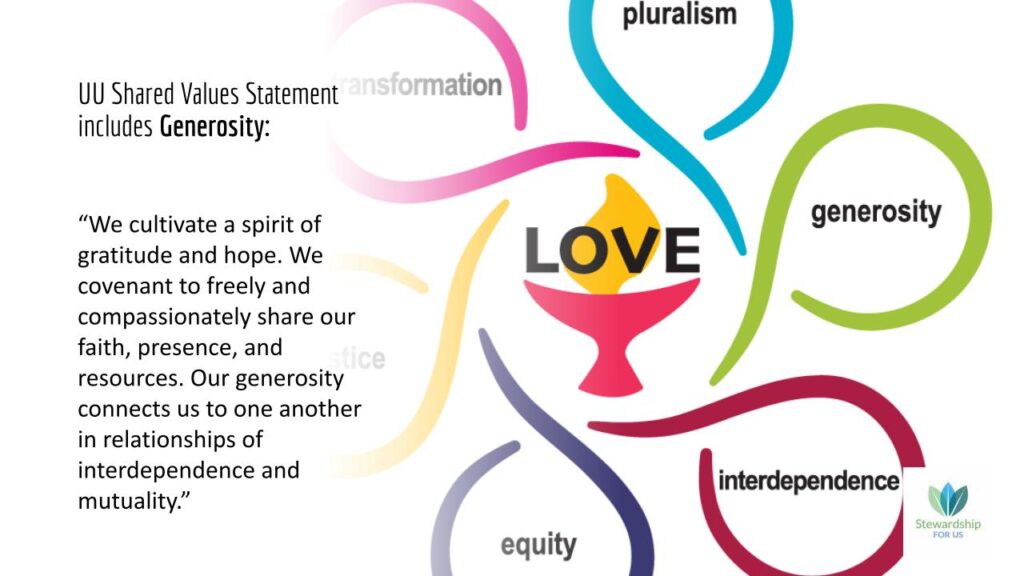At the 2024 UUA General Assembly, Unitarian Universalists affirmed Generosity as a core denominational value. But what does that mean in practice—especially in a time of national stress, economic uncertainty, and urgent justice struggles?
A recent gathering of UUs explored how we can embody generosity as congregations and as individuals, sharing ideas, stories, and resources. Below are key takeaways—and concrete invitation to deepen our commitment.
Here’s what we talked about:
1. Financial Generosity: Transparency & Creativity
Many congregations are rethinking stewardship with fresh approaches:
-
Multi-year pledges to provide stability.
-
“Placeholder pledges”—allowing people to commit now and reassess later.
-
Full financial transparency—showing exactly where money comes from and where it goes.
-
Legacy giving—encouraging members to include their congregation in wills.
-
Themed campaigns, like one illustrating what different funding levels support.
Challenge: Some congregations have faced distrust when financial goals didn’t align with reality. Honesty and proactive communication are essential.
2. Beyond Money: Time, Space, and Solidarity
Generosity isn’t just about dollars—it’s about how we show up:
-
Hosting Tent City for unhoused neighbors.
-
Donating fifth-Sunday collections to justice organizations.
-
Partnering with local nonprofits, inviting them to speak and deepening connections.
-
Small support groups for federal workers or others impacted by crises.
Powerful Moment: During an annual pledge drive, a young family shared that while they couldn’t give much financially, their gratitude for those who could was a gift in itself. Their testimony served as a reminder to the congregation that generosity thrives in vulnerability.
3. Emotional & Spiritual Generosity
As one participant noted, “Generosity is emotional, not rational.”
-
Storytelling matters. Testimonials, parables, and shared experiences inspire action.
-
Asking is key. People want to be invited into meaningful giving.
Generosity as Resistance
In anxious times, generosity is both a spiritual practice and a radical act. It reminds us that scarcity doesn’t have to dictate our choices—that we can share, sustain, and struggle together.
What’s one way you will practice generosity this month? Let’s keep the momentum going.

Rev. Sara Green is driven by a lifelong commitment to just stewardship that upholds core values. Hailing from New Orleans, Sara finds her spiritual practice grounded in embodiment, valuing the connection between the physical and the spiritual in ways that have practical implications for how we manage our money. Sara is particularly interested in working with the stories we have around money that excite our financial imagination.

